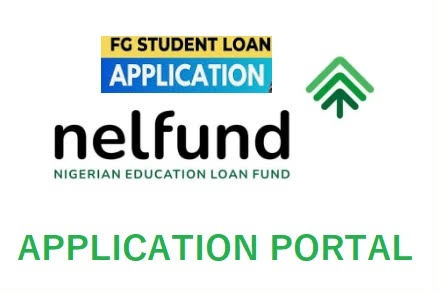Physical Address
60 Ekwema Cres, Layout 460281, Imo
Physical Address
60 Ekwema Cres, Layout 460281, Imo

If you lack sufficient funds for college expenses, a student loan allows you to borrow money and repay it later with interest.
Student loans, like other loans, require you to repay the principal amount along with interest, although some may offer favorable repayment terms. The interest rates, loan terms, and fees play crucial roles in determining your total payment throughout the loan’s duration.

Now, let’s delve into how student loans operate. It’s essential to grasp the repayment terms when borrowing for college.
Also read: Connected Africa Summit 2025 Unveils Kenya’s Plans to Equip Millions of Youths with Digital Skills
A student loan is money borrowed to cover post-secondary education costs, including tuition, room and board, and textbooks. This borrowed amount must be repaid over time, along with an additional percentage known as interest. You can as well get study loan for International students in case you are studying abroad.
There are two main categories of student loans: federal loans and private loans.
Federal loans, funded by the U.S. government, generally offer lower interest rates and more flexible repayment options compared to private loans. They encompass three primary types:
On the other hand, private loans are provided by non-government institutions such as banks, credit unions, and some schools. They often carry higher interest rates and less flexible repayment terms compared to federal loans. Private loans are typically considered after exploring all federal loan options.
Now to an understanding of student loans in Nigeria.
The Student Loan in Nigeria refers to the Student Loan (Access to Higher Education) Act. This loan is provided by the federal government of Nigeria to students in the country who wish to pursue higher education or develop functional skills through an approved entity known as NELFUND.

NELFUND, short for the Nigeria Education Loan Fund, is a corporate body established by the Federal Government of Nigeria. Its mandate includes regulating, monitoring, and managing the Nigerian student loan fund and its disbursement.
NELFUND possesses legal authority, enabling it to initiate legal actions and be subject to legal actions in its name. Additionally, it has the power to acquire, hold, and dispose of property, whether movable or immovable, to fulfill its functions.
One of NELFUND’s primary functions is to ensure the proper execution of loan contracts, agreements, and repayments by the beneficiaries.
This overview provides a comprehensive introduction to the Nigerian student loan system, offering a clearer understanding. Now, let’s proceed with exploring the loan application process and its requirements.
The Requirements for Student Loans in Nigeria are overseen by NELFUND, which handles the checking, validation, processing, and approval of loan applications based on the provided criteria. Therefore, it’s crucial to ensure eligibility before applying and to submit accurate information.
Here are the eligibility requirements:
NELFUND will verify the personal data provided. Ensure that you provide a valid and active national identification number (NIN), bank verification number (BVN), and JAMB number for verification purposes.
Also read: Easy Steps to Check your UP 10th & 12th Results 2025 Online
In the latest update of 2025, significant changes have been made to the eligibility criteria, making it easier for applicants to obtain loan approval. Let’s explore what’s new:
These changes represent a more streamlined and accessible process for obtaining loans, benefiting prospective applicants.
The NELFUND board comprises dedicated individuals chosen from various ministries in Nigeria. They are committed to supporting students in pursuing higher education. Board members often represent the following ministries and organizations:
The Fund refrains from initiating loan recovery efforts until two years after the applicant completes the National Youth Service Program (NYSC). During this time, it is expected that the beneficiary will have secured employment and can commence repayment.
If a beneficiary encounters difficulty in repaying the loan even after the designated loan recovery period, they can provide a sworn affidavit indicating unemployment and the inability to generate income, thus deferring repayment.
NELFUND has a loan forgiveness policy that grants forgiveness in cases of death or situations beyond the beneficiary’s control, such as acts of God, rendering repayment impossible.
Also read: Easy Steps to Check CBSE Class 10th & 12th Results 2025
The Student Loan (Access to Higher Education) Act is a federal government initiative in Nigeria that provides loans to students pursuing higher education or functional skill development through NELFUND.
NELFUND, the Nigeria Education Loan Fund, is a corporate body established by the Federal Government of Nigeria to regulate, monitor, and manage student loans and their disbursement. Its functions include validating, processing, and approving loan applications based on eligibility criteria.
Eligibility criteria include being a Nigerian citizen, aged 18 or above, possessing an SSCE O-level certificate for first-time students, maintaining acceptable academic performance for undergraduates, and not pursuing master’s or doctorate degrees.
To apply, visit the NELFUND board, complete the application process, and submit the required documents for review. Upon approval, you will be notified of the success of your application.
Loan repayment begins two years after the applicant completes the National Youth Service Program (NYSC). The beneficiary is expected to have secured employment by then and can initiate repayment.
The Student Loan (Access to Higher Education) Act and the operations of NELFUND represent significant strides in supporting Nigerian students in their pursuit of higher education and skill development. The recent changes in eligibility criteria, such as the removal of income thresholds and guarantor requirements, have made the loan application process more accessible to deserving applicants.
Through NELFUND’s diligent review and approval processes, students can access the financial support they need to fulfill their educational aspirations. The dedicated members of the NELFUND board, representing various government ministries and institutions, play a crucial role in ensuring transparency and efficiency in loan disbursement.
As beneficiaries embark on their academic journeys, they can rest assured that NELFUND offers flexible repayment options and considerations for unforeseen circumstances. The loan forgiveness policy provides a safety net in challenging situations, demonstrating NELFUND’s commitment to empowering students and promoting educational advancement in Nigeria.
Overall, the initiatives outlined in this article underscore the government’s commitment to fostering a conducive environment for higher education and skill development, paving the way for a brighter future for Nigerian students.
Interact with us via our social media platforms:
Facebook: Silicon Africa
Instagram: Siliconafricatech
Twitter: @siliconafritech